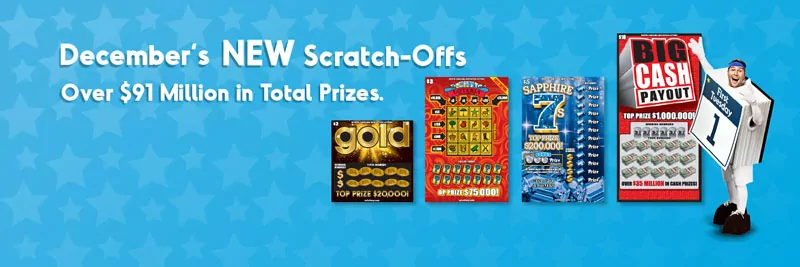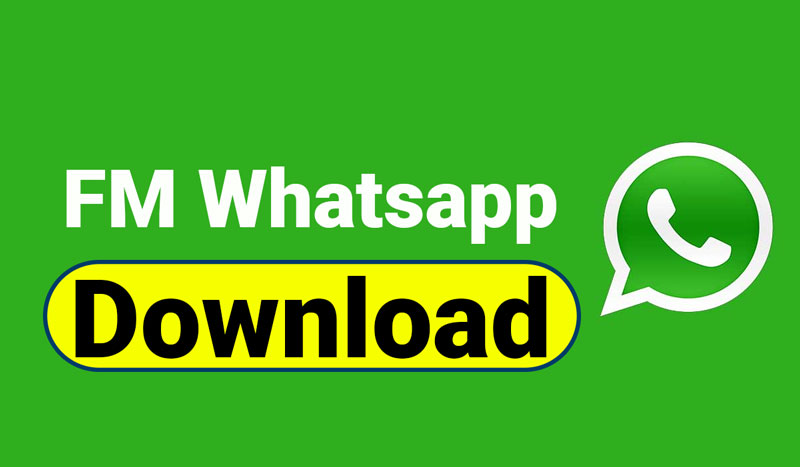North Carolina Education Lottery (NCEL) known as the NC Education Lottery also is managed by the North Carolina government. Governor Mike Easley signed the North Carolina State Lottery Act and the 2005 Appropriations Act, which formed it.
- History Of North Carolina Education Lottery
- Controversy in North Carolina Education Lottery
- Distributions And Profits
- North Carolina Education Lottery broadcast Television
- Currently, there are no games that have ended in a draw
- Multijurisdictional games are a type of game that involves multiple jurisdictions
- North Carolina Education Lottery: The Facts
- What Happens to Lottery Money?
- What Happens to Education Funding?
- Is there a link between the lottery and school funding?
- What is the purpose of the North Carolina Education Lottery( NC education lottery)?
North Carolina has one of the newest lottery systems in the US, having been established in 2005. The North Carolina State Lottery Act established a nine-member Lottery Commission to regulate all aspects of the educational lottery. The North Carolina Lottery’s net profits, which have totalled more than $5.5 billion since its start, go entirely to benefit the state’s education.
The school building, need-based college financial aid, transportation, salaries for non-instructional support staff, and pre-kindergarten for at-risk four-year-olds are all covered by lottery funding by law. The State Lottery Act specifies how every penny raised by the lottery shall be spent. The revenue distributions in 2012 were as follows: sixty per cent. was distributed as rewards, with 29 per cent going to the education fund, 7% going to shops that sold lottery tickets, and 4% going to general lottery expenses. After then-Lieutenant Governor Bev Perdue cast a tie-breaking vote in the North Carolina Senate on August 31, 2005, the contentious lottery plan was adopted.
History Of North Carolina Education Lottery
The only East Coast state without a lottery was North Carolina, which has traditionally been associated with the Bible Belt. Legislators and the general public were divided on the subject. Due to the opposition of virtually every Republican and a minority of Democratic members, a lottery seemed impossible to pass at the time (most of whom were progressives). These organizations criticized the lottery as a regressive tax on the poor.

On August 30, 2005, two lottery opponents (Harry Brown, R-Jacksonville, and John Garwood, R-North Wilkesboro) were excused from voting. A special vote was called based on this information, and the result was a 24-24 draw. Lt. Gov. Perdue cast the tie-breaking vote, clearing the way for Gov. Easley to sign it into law. The vote would have been rejected if the senators who were not present had paired their votes.
Tarla Movie Trailer Review Watch online in HD 720p
Controversy in North Carolina Education Lottery
Governor Perdue withheld nearly $88 million from the North Carolina budget in February 2009 to address a budget shortfall. Perdue depleted the $50 million lottery reserve and withheld $38 million from a school construction budget, thereby contradicting the NCEL’s mandate. The Governor’s controversial move spurred North Carolina lawmakers to propose a name change for the NCEL on March 10, 2009, removing the word “education” from the name.
Distributions And Profits
- Retailers are compensated with a 7% commission.
- As prizes, players receive half of the prize pool.
- Cost of sales accounts for 8% of total revenue.
- The remaining 35% is allocated to educational funds, which are divided as follows:
- Before any money is distributed, the Education Lottery Reserve Fund receives 5% of the revenue (1.75 percent of the total), which will be used if lottery funds are insufficient. The size of this fund is capped at $100 million.
- Class size reduction will receive 50% of the remaining monies (16.625 percent of the total).
- Construction of schools consumes 40% of the remaining funds (13.3 percent of the total).
- School enrolment determines the distribution of 65 percent of the aforementioned (8.645 percent of the total).
- The remaining 35% (4.655%) goes to counties with effective property tax rates that are greater than the state average based on school districts. respondents who believe the Lottery could have impacted teacher layoffs
- College scholarships are granted 10% of the remaining money (3.325 percent of the total) to be used in combination with the federal Pell Grant.
- North Carolina’s scratch tickets had the lowest total payback of any scratch ticket available in the United States at the time, at 52 percent. While the company’s $1 instant tickets continue to payout at the same rate, the company’s new $2-and-up games now have higher payoff percentages.
- The Lottery has created more disagreement among North Carolinians, who believe the Lottery should have covered the gap caused by teacher layoffs.
North Carolina Education Lottery broadcast Television
These television channels broadcast Lottery drawings in real-time:
- WRAL-TV in Raleigh is a local television station.
- WITN-TV is a television station in eastern North Carolina.
- WAXN-TV in Charlotte
WILM-LD in Wilmington and WLOS in Asheville (2011-)
WGHP is a radio station that broadcasts in Greensboro, Winston-Salem, and High Point.
There are no recognized stations in the Florence/Myrtle Beach and Hampton Roads areas, which both encompass parts of North Carolina.
WYCW in Asheville broadcasted the lottery results from 2006 to 2011. The designs were transferred to WLOS on March 28, 2011.
Currently, there are no games that have ended in a draw
Workplace games of chance Pick 3 for Carolina Since October 6, 2006, Carolina Pick 3 has been chosen twice daily. (It was only drawn once on Sundays before February 27, 2011). In Carolina Pick 3, three balls, numbered 0 through 9, are drawn. Players can wager in 50-cent increments on whether the numbers chosen are in exact sequence or in any order.
Another choice is the $1.00 “50/50” wager, which combines an “Exact” with an “Any” gamble. Finally, there’s the “Combo,” which is a $3.00 or $6.00 wager (depending on whether the number played repeats a digit). A $1.00 bet on an “Exact” number earns $500 if it is drawn (odds are 1 in 1,000).
Carolina’s pick is number four
Carolina Pick 4 launched on April 17, 2009, as a twice-daily game. (It was only drawn once a night before to February 27, 2011). It’s similar to Carolina Pick 3, however it draws four digits instead of three. A bet of $4, $6, $12, or $24 on whether any digit repeats is known as a “Combo” bet. A $1 “Exact” wager wins $5,000 if the number is drawn; the odds are 1 in 10,000.
In the Carolinas, there’s a chance to win $5,000.
Sex Education 2023 in schools season cast episodes
Carolina Cash 5
Carolina Cash 5 is a nightly lottery that started on October 27, 2006, and continues to this day. As of Sunday, November 4, 2018, it currently pulls 5 digits from 1 to 43. The prizes begin at $100,000 and continue to rise until a 5-of-5 winner is discovered. Each game costs one dollar. The overall odds of winning are 1 in 10.51, with a chance of winning the top prize of 1 in 962,598.
Matching two of five numbers earns you $1. matching three of five numbers earns you $5. matching four of five numbers earns you $250, and the jackpot is pari-mutuel. On April 25th, 2021, the Carolina Cash 5 included a Double Play add-on feature. The top prize in the Double Play feature is $50,000, and each play board costs an extra $1. The Double Play drawings take place after the Cash 5 drawings.
Foxy App Download 2023
Multijurisdictional games are a type of game that involves multiple jurisdictions
Lucky for Daily existence is a lottery game that may be played in 23 states and the District of Columbia. Fifth numbers from 1 to 48 and a sixth number from 1 to 18 are chosen by the players. For the rest of the winner’s life, prizes vary from $3 to $1,000 per day, every day.
Mega Millions is a lottery game in which you can win
Mega Millions is a lottery game that is available in 44 states, the District of Columbia, and the United States Virgin Islands. On January 31, 2010, Mega Millions became a participant of the NCEL as part of MUSL’s cross-sell operations. Mega Millions is drawn in Atlanta, Georgia on Tuesday and Friday nights at 11:00 p.m. Eastern Time.
Powerboat
NCEL joined Powerball on May 31, 2006, after it had been established in 1992. As in Mega Millions, players choose six numbers from two pools: five numbers 1 through 69 and the red Powerball (1-26). Annuity jackpots started at $40 million. Monday, Wednesday, and Saturday are the days for the drawings.
Perdue’s lottery grab is a violation of the state’s guarantee, according to an opinion
Last Friday, Gov. Bev Perdue won an 88 million lottery prize for the expense of the state’s integrity.
The governor had a legitimate reason for transferring that much money from lottery accounts to the general fund. Furthermore, her actions are in contradiction of the lottery statute of 2005 and violate the public’s trust.
The lottery was created to raise revenue for future schools. It is enshrined in law. By transferring funds to the general fund, they become available for use for any purpose.
Perdue authorized that $50 million be transferred from the lottery reserve fund, leaving it empty. She also withdrew $38 million that was supposed to go to counties for school construction.
She believes that she has constitutional authority to overturn the lottery law, and she could be right. The state constitution mandates a balanced budget and directs the governor to “continually evaluate revenue collection and… implement necessary economies in the state expenditures” to address any gaps in the budget.
Due to dwindling state revenues, Perdue has ordered expenditure cuts to bring the ledger into balance by the end of the current fiscal year. She still needs to come up with the cash to cover her expenses. The lottery is a very well source of income. Considering the strength of the economy, it appeared that many North Carolinians are still willing to risk what little they have in the hopes of winning a fortune. Perdue is using their bad luck to help solve the state’s budget shortfall.
She has, however, fallen into a moral quagmire in the process. The lottery was narrowly authorized, with backers promising that all proceeds would go to public education. As lieutenant governor, Perdue cast the tie-breaking vote in the Senate. The North Carolina Education Lottery is self-explanatory. It was never intended to close budget gaps, no matter what the circumstances. Without the guarantee of solely being used for educational purposes, The lottery would almost certainly not have been accepted.
However, only four years later, the pledge has been forgotten. Without a doubt, Governor must fulfill her legal requirement to balance the budget. Right now, the recession makes that an immensely challenging assignment. However, the governor may face a budget shortfall at any time. All it takes is for the governor and legislature to present excessive expenditure or tax revenue projections. As a result, the governor and her successors will be able to use lottery monies to aid out whenever they need it in the future. Others will find it simple to obey if one governor can accomplish it.
The lottery’s most ardent supporters aren’t even protesting. They must have known this was going to happen all along.
It’s possible that no one should be surprised. It was always the intention of the lottery to deceive the naive.
North Carolina Education Lottery: The Facts
Governor Mike Easley signed the North Carolina State Lottery Act and the 2005 Requirements And ensure into law in 2005, establishing the North Carolina Education Lottery. Originally, a minimum of 35% of lottery proceeds had to go to education. This mandate was converted to a guideline by the legislature in 2007. There is no law protecting lottery revenues used solely for educational reasons. Less than a quarter of lottery income is being spent on education. The leftover funds are used to pay out prizes, compensate retailers, and cover other costs. The North Carolina Lottery produced $936 million in the fiscal year 2021 to support the curriculum in the state.
What Happens to Lottery Money?
The majority of the money invested is returned to the state in the form of prizes, retail commissions, and educational revenues. The lottery distribution in FY 2021 was as follows:
Prizes accounted for 64.62 percent of the total. 2.46 billion dollars
24.56 percentage point – $936 million for education
6.91 percentage point – Commissions and incentives for retailers $263 million in total
1.89 percentage point – Services and licencing for gaming systems 0.73 percent $72 million – Lottery wages, salaries, and benefits 0.75 percent $27,908 million – Lottery promotion $28 million (0.46 percent) – Lottery administration: $17.451 million (0.08 percent) – Lottery responsible gaming initiatives: $17.451 million (0.08 percent) 3.1 million dollars
What Happens to Education Funding?
Over $692 million in lottery money supported education programs in the 2019-2020 academic year. Legislators are the ones who decide how the money should be spent. The following programs received funding last year:
Non-instructional Assistance (56 percent )
More than $385 million in lottery funding were used to offer government and private education sector, including support employees such as office secretaries, janitor, and substitute instructors.
Development of a School (25 percent )
A total of $173 million in lottery cash was distributed to local school districts for school building and repair. Local leaders decide how to put the construction funding they earn to the best possible use.
Kindergarten is the first year of elementary school (11 percent )
The North Carolina Pre-K program was able to enroll 13,821 children from throughout the state thanks to lottery cash.
LEA Getting around (3 percent )
Counties received more than $21 million to help with school transportation costs like bus driver pay and fuel.
UNC’s Need-Based College Scholarships (3%) and UNC’s Financial Aid Based on Need (2 percent )
Last year, 22,267 students received lottery awards to help cover the costs of attending a North Carolina state university or community college, while 55,092 students got grants to attend a state university through the UNC Need-Based Grant Program.
Throughout the lottery’s history, funds have gone to a number of educational organizations.
Each year, legislators decide where the monies will be allocated. Here’s a rundown of how legislators have allocated resources in the past.
Lottery revenues are used to support academic activities in all 100 counties of North Carolina. Here is a breakdown of the revenue distribution by county in FY 2020.
Is there a link between the lottery and school funding?
Since 2006, the lottery has given more than $8.2 billion to education programs, however, it is unclear if this constitutes an increase in education funding.
Originally, the lottery legislation specified that lottery income should be used as a supplement to existing state spending instead of as a replacement. This passage, however, was omitted.
Before the election, legislators were given the option of using lottery funds to replace state financing.
Lottery critics contend that rather than augmenting state money, lottery funds have supplanted it. We don’t know what would have occurred with education spending if the lottery didn’t exist, therefore it’s difficult to say if the lottery has improved education funding. The recession’s influence on education financing makes estimating the lottery’s impact even more difficult.
Even though the lottery donated 100% of its profits to education, it would only pay around 19% of the state’s overall budget for K-12 public schools. Most educational resources are underfunded or unfunded entirely. Additional financing is needed to provide enough school resources and to restore North Carolina’s budget levels prior to the recession so that all children receive an acceptable education.
What is the purpose of the North Carolina Education Lottery( NC education lottery)?
The school building, need-based college financial aid, transportation, salaries for non-instructional support staff, and pre-kindergarten for at-risk four-year-olds are all covered by law using lottery revenue. The State Lottery Legislation provides how every penny raised by the lottery will be spent.



